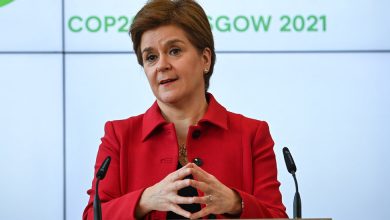Europe labels nuclear and natural gas as sustainable investments.

The European Union said on Wednesday it would label some nuclear power and natural gas plants, under certain conditions, as “transitional” green investments in order to drastically cut the continent’s greenhouse gas emissions.
The landmark legislation is “a signpost for private investment” and an “important step in transition to a climate neutral economy,” said Mairead McGuinness, the bloc’s commissioner for financial services. “As governments and public authorities we cannot do this alone; we need the private sector to play its full part.”
The move, which can be blocked if enough member states or lawmakers in the European Parliament oppose it, is expected to steer private and public investments into new nuclear plants and gas-fired power stations.
Proponents say nuclear power and natural gas must be supported as “bridges” until renewable technologies — like solar, wind or eventually hydrogen — can generate enough power to replace fossil fuels.
But critics, including many members of parliament, say it promotes energy sources that are harmful for the environment, and that the new rules smack of greenwashing.
The European Commission, the bloc’s executive branch, which published the measure Wednesday, said that the classification was critical to meeting the legally binding target to become climate neutral by 2050. Addressing the criticism, Ms. McGuinness told reporters on Wednesday: “Today’s act might be imperfect, but it is a real solution.”
The plan caps months of fierce political debate. The aim of the so-called taxonomy regulation has been to create “a gold standard” to guide private and public investors, but it became a proxy battle for the future of Europe’s energy mix.
The bloc has been struggling in recent months with skyrocketing gas and electricity prices, but under E.U. law, national governments are tasked with regulating energy, and their policies vary immensely. The legislation published on Wednesday is an attempt to find a compromise between several countries: Those that back the use of nuclear power, led by France; gas-dependent Eastern European nations; and countries including Germany and Luxembourg that oppose the proliferation of nuclear power stations.
Under the plan, nuclear and natural gas plants are labeled “transitional” green energy sources if they meet certain conditions. National governments would need to guarantee safe disposal of radioactive waste, and nuclear plants must undergo regular safety updates, with newly built plants labeled sustainable only until 2045. For natural gas plants, only those that replace coal facilities and meet specific emissions criteria will be classified as sustainable investments.
A draft of the plan, published by the commission on Dec. 31, provoked a broad wave of criticism from some member nations, experts and lawmakers, who said that the consultation period was too brief and denounced the timing of the release during a holiday period. Compounding the confusion surrounding the new rules, the commission did not publish the final legislative act until one hour into a news conference on the topic.
The Platform on Sustainable Finance, a group of green finance experts which has been advising the commission, objected to the plan.
“The taxonomy was supposed create a steady flow of green investments,” said Henry Eviston from the Wild World Fund Europe’s office, which was part of the advisory group. “Instead, we are going to get a tsunami of greenwashing. It penalizes clean technologies, it will stifle innovation and direct billions of euros to investments in ‘business as usual.’”
And some investors and financial institutions may steer clear of the classifications. The head of the European Investment Bank, Werner Hoyer, said last week that the complexity of rules would make the investors “drowsy.”
The Institutional Investors Group on Climate Change, an association of Europe’s asset managers and investors including BlackRock and Goldman Sachs, said in an open letter that including natural gas undermined “the E.U.’s ambitions to set the international benchmark for credible, science-based standards for classifying sustainable economic activities.”
The regulation is not expected to be blocked by a sufficient number of national governments — under the bloc’s rules, at least 15 out of 27 member states, representing at least 65 percent of the E.U. population, would be necessary to stop it. But Austria and Luxembourg threatened legal action if nuclear power was labeled green. Austria, Denmark, Sweden and the Netherlands earlier this week urged the commission not to include any “fossil gas-based activities” as sustainable.
The plan is also set to face resistance in the European Parliament, although it remains unclear whether a majority of the body’s lawmakers would vote to block it.
Paul Tang, a center-left member of the European Parliament from the Netherlands, said the plan “diverts resources towards energy sources that are not sustainable.”
But Pascal Canfin, a French member of the European Parliament from the center-right Renew political group, the party of President Emmanuel Macron, called the proposal “a good compromise.”
“What we are after is relocation of market capital and public money to what can be useful in the green transition,” he said, “as long as you have the transparency requirement, and as long it is in the transition category.”



